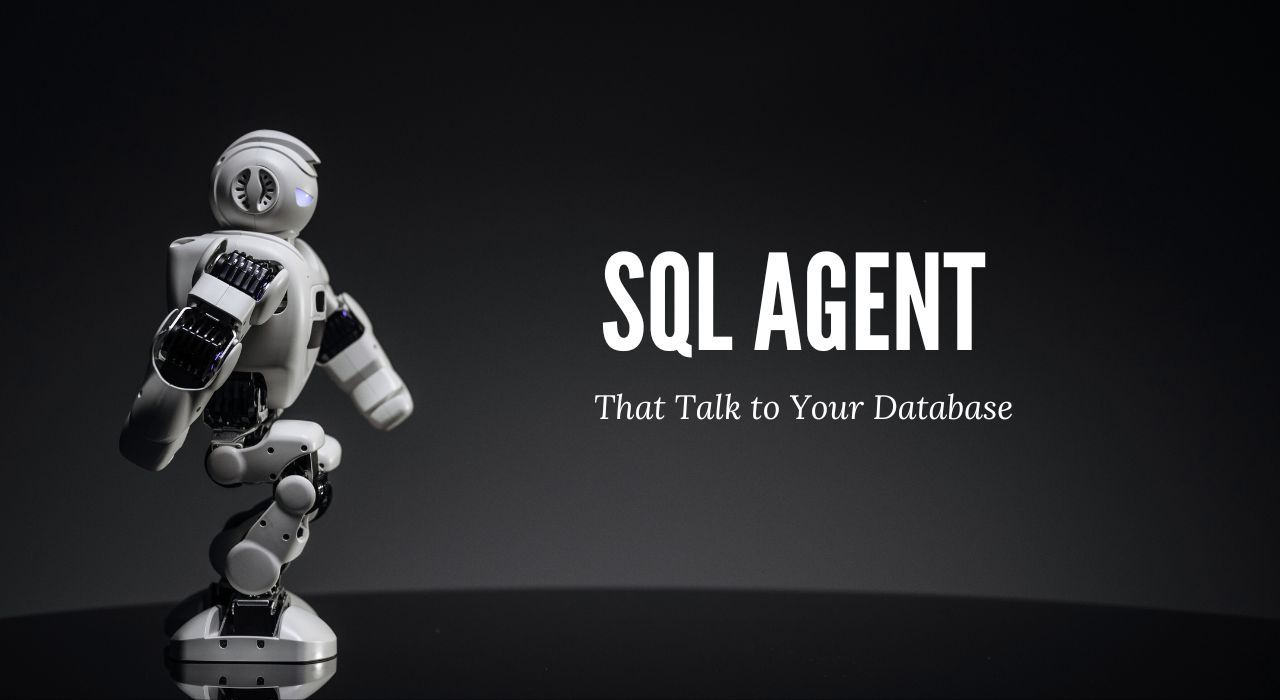Tuesday, July 01, 2025
AI
What is an SQL Agent? Build Your First SQL Agent with Langchain

Imagine if you could simply talk to your database like you talk to a colleague. No complex SQL syntax, no endless debugging – just type your question in plain English and instantly receive the exact data you need. That’s the magic of an SQL Agent.
An SQL Agent is like having a smart AI-powered helper by your side. It understands natural language instructions, converts them into accurate SQL queries, and fetches results for you within seconds. Whether you're an analyst, a business owner, SQL agents simplify data interactions, save time, and empower decision-making.
In this blog, we will understand what SQL agent is & Build your first SQL agent with LangChain step by step. By the end, you’ll be ready to integrate AI agents into your workflows and transform the way you handle data forever.
Understanding SQL Agents
What’s SQL Agent
An SQL agent is an AI-powered software code that interprets natural language inputs and converts them into structured SQL queries to retrieve data from database schemas.
Functions of SQL Agent
- User input in natural language
- Generates syntactically correct SQL queries
- Connects to databases securely
- Executes queries and returns results in user-friendly formats
Architecture of an AI SQL Agent
Here is a architecture of SQL Agent built using LangChain:
User Input: Where users provides input
Language Model (LLM): Processes prompts and generates SQL queries based on database tables schemes
Database Connector : Facilitates secure connections to databases like PostgreSQL, MySQL, or SQLite.
Database: Retrieve tables,columns schemas and data queried by the agent.
Answer: Displays query results in human-readable format.
What’s LangChain?
LangChain is an open-source framework designed to build powerful AI applications and agents by connecting LLMs to external tools, APIs, and data sources.
Why Use LangChain for SQL Agents?
LangChain simplifies building SQL agents by:
- Providing ready-made agent classes for SQL querying
- Supporting integration with popular LLM Models & database connectors
- Allowing natural language interaction with structured data
- Managing complex prompt workflows securely and efficient
Build Your First SQL Agent:
Let’s build SQL Agent step by step implementation with following quick commands -
Step 1: Set Up Your Python Virtual Environment
First, create and activate a dedicated environment to manage dependencies
In macOS/Linux:
python3 -m venv sqlagent-env source sqlagent-env/bin/activate
In Windows:
python -m venv sqlagent-env .\sqlagent-env\Scripts\activate
Step 2: Install LangChain and Dependencies
Set your OpenAI API key as an environment variable to access the LLM.
pip install langchain openai sqlalchemy
Step 3: Connect to Your Database
For other databases, replace with the appropriate URI.
from sqlalchemy import create_engine
engine = create_engine("sqlite:///chinook.db"
Step 4: SQL Agent with LangChain
from langchain.llms import OpenAI from langchain.sql_database import SQLDatabase from langchain.agents import create_sql_agent llm = OpenAI(temperature=0) db = SQLDatabase(engine) sql_agent = create_sql_agent(llm=llm, db=db)
Steps 5: Create Prompt Template and Run Query
query = "Show me the top 5 products by sales" result = sql_agent.run(query) print(result)
AI SQL Agents are not limited to running simple database queries. They act as intelligent data assistants, providing end-to-end support for business insights and decision-making.
Conclusion:
SQL agents transform how we interact with data by bridging natural language and structured queries. With LangChain, building an SQL agent becomes powerful, and production-ready. It is a complete data analysis engine, capable of understanding user goals, running appropriate calculations, summarizing insights, and powering dashboards or decision-support systems in real-time.